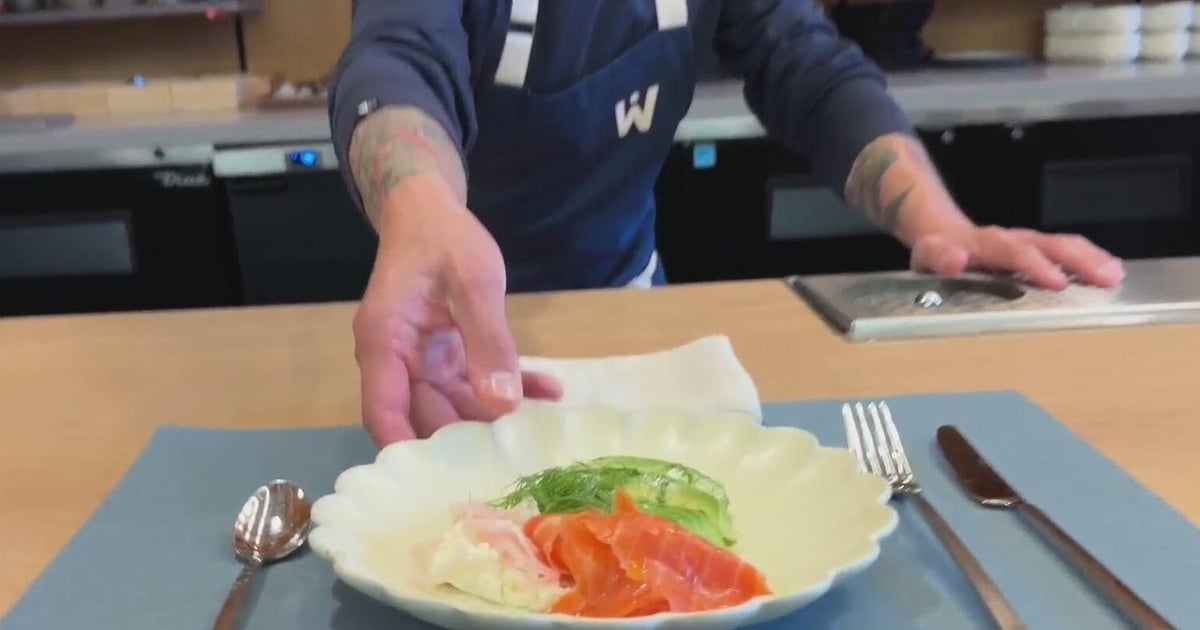COVID Reopening: The Challenge Of Recovering From Pandemic Weight Gain
SAN FRANCISCO (KPIX) -- California plans on reopening its economy on June 15. The vaccination rates, especially in the San Francisco Bay Area, are very high. And those who are fully vaccinated, two weeks from their last shot, will be able to enjoy most situations mask-less.
The hope is that Californians will be able to slowly but eventually return to a more normal life. But will there be a return to a more normal weight? A national survey found 42% of us gained weight during the pandemic, nearly 30 pounds on average.
Experts told KPIX News to lose that extra weight might be a challenge given the science behind weight gain and the U.S. diet. But they remarked if our viewers became armed with information about the science, they would have new tools to face the challenge.
"You know I'm thinking about going back to healthier diets, but I haven't really done it," noted Sue Smith, a writer and Los Angeles-based comedian
Before the pandemic, Smith ate the quintessential California diet.
"I was healthy. I was vegetarian. I was eating quinoa. I was eating kale salads," she said.
Then the novel coronavirus hit U.S. shores and a pandemic was declared. Shelter-in-place and hunkering down at home became the new normal. Kale? What kale?
"I ate a box of mac and cheese for lunch," said Smith.
Early in the pandemic, we just didn't buy toilet paper. The sales of packaged food jumped up nearly 88%. We snacked like never before. Experts explained how quick carbs, and snacks were desired, serving up some comfort but also concern for some in public health.
Dr. Robert Lustig is a professor emeritus of pediatrics in the Division of Endocrinology at the University of California San Francisco,
He believes the food industry is pushing processed foods loaded with sugar, and that is hijacking our bodies and minds to overeat. He told KPIX 5 how the pandemic created a perfect storm.
"It used to be that 50% of all food was consumed outside the home and now that's basically reverted to inside the home the problem is we're not eating salmon, we're eating ultra-processed foods," said Lustig.
Ultra-processed foods include sugary soft drinks, colorful and sugary breakfast cereals, packaged cookies, salty snacks, and frozen meals. People snapped them off the shelves.
The food industry noticed. Last August, one popular brand of macaroni and cheese marketed itself to stressed-out moms - as a breakfast food.
"These companies are doing what most companies do which is to make as much money as possible by selling as much product as possible," noted investigative journalist Michael Moss. "And by making that product as attractive and seductive as possible."
In a new book, "Hooked," Moss explored and wrote about the science of food addiction, detailing evidence that shows how highly processed foods are engineered to hijack the reward circuits in our brains.
Moss told KPIX 5 that consumers don't just "like" the food, they want more and more and more.
"I'm actually convinced that in some ways their products are more trouble for us then other addictive substances," explained Moss.
The Pulitzer Prize-winning author describes how the processed-food industry has invested decades into making its products irresistible. His research found how one tool involves tapping into memory and nostalgia for comfort.
"We went shopping and under the stress and strain of the pandemic," said Moss. "We started buying junk we haven't had since we were kids.
That's exactly what happened to Smith. In the supermarket during the pandemic, she headed down memory lane.
"It's all the stuff that I loved when I was a kid and a teenager," said Smith. "And really my first culinary loves."
Dr. Elissa Epel, professor and Vice Chair in the Department of Psychology at UCSF, explained there is a biological reason.
"We're just wired to make the wrong choices when we're stressed, we crave sugar," said Epel.
As the Bay Area returns to the office, Epel has some advice for employers on how to help all workers get back on track. In a previous study, Dr. Epel and her team found when employers stocked their cafeterias with no sugary beverages, employees lost weight.
"People can bring to work what they want, but we shouldn't be selling and feeding them these unhealthy choices," said Epel.
Smith is looking forward to a change.
"I have thought about it, so I think that's the first step," said the comedian.
Experts say try to avoid ultra-processed foods, and when you feel a craving reach for a whole food instead: fruit, vegetables, nuts, meat, eggs - anything that is not boxed up and labeled with ingredients you don't recognize.



